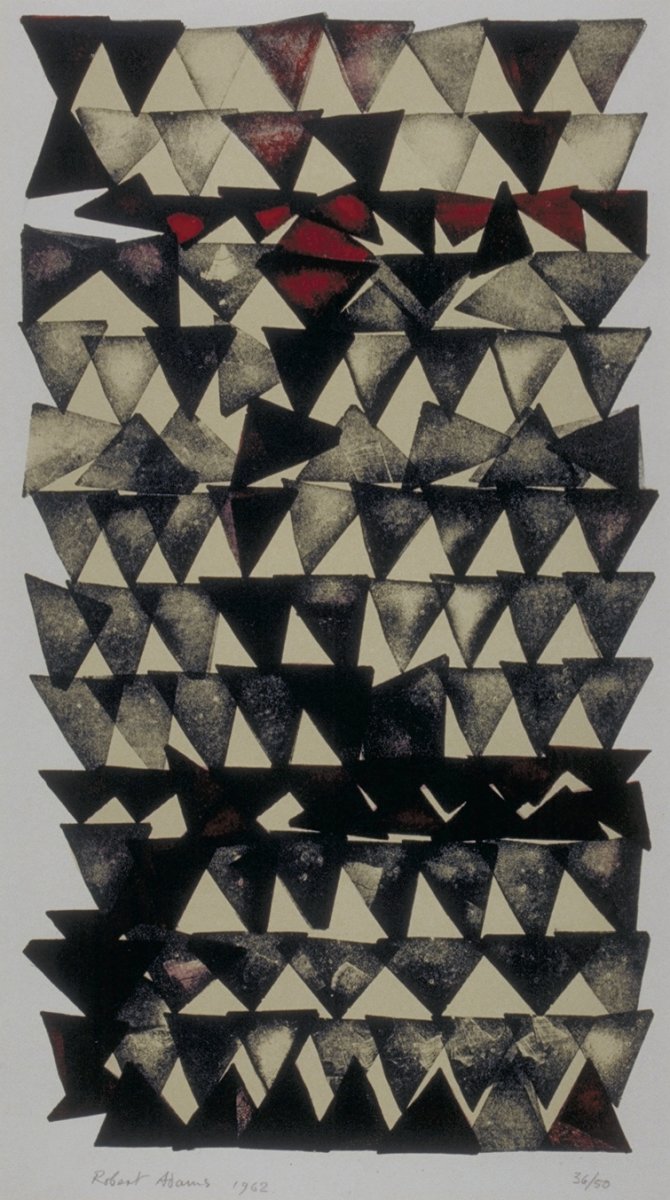Screen I

-
About the work
- Location
-
Country: UK
City: London
Place: Government Art Collection
-
About the artist
Robert Adams grew up in the village of Hardingstone, near Northampton. He left school at the age of fourteen and then did various manual jobs, making agricultural machinery, for example, thus mastering the use of wood and metal-working tools. He attended evening classes at Northampton School of Art and became an accomplished draughtsman in the life class and a painter of portraits, landscapes and still life in oils. However as there was no sculpture course he was largely self-taught in that discipline. In 1946-7 he gave up his job and living off his savings, devoted himself full time to carving. During the next few years Adams moved rapidly from being an obscure provincial artist to one of the most promising sculptors in the British avant-garde. In 1947 he held his first solo exhibition at Gimpel Fils Gallery in London, which continued to give him regular exhibitions for the rest of his life. In 1948 Adams visited Paris, following an introduction to the French sculptor Maxime Adam-Tessier, who was taught by Henri Laurens. The introduction led to a long-lasting friendship and Adam-Tessier enabled Adams to visit the studios of several prominent Paris-based sculptors, including Constantin Brancusi. In the following year he exhibited in Paris, and again at Gimpel Fils, and started teaching at the Central School of Art in London. In 1950 he spent three months in the United States, where he met artists of the New York School and studied the teaching methods at the Chicago Bauhaus. The Arts Council commissioned him to produce a large sculpture for the Festival of Britain in 1951, and in 1952 his work was exhibited at the Venice Biennale under the auspices of the British Council. A convert to Roman Catholicism on his marriage in 1951, Adams also worked on religious subjects, such as a bronze crucifix in about 1955 for the Bishop of Coventry at the request of Basil Spence, and abstract studies for the Stations of the Cross in 1969-70. One of his most important commissions was an enormous reinforced concrete relief for the city theatre at Gelsenkirchen in the Ruhr in 1957. Major commissions continued to come to him, including metal sculptures for the liners Canberra and Transvaal Castle in 1961; sculpture for the BP Building in London in 1966, and in 1967 sculpture for the New Customs House at Heathrow Airport. His welded steel sculptures were also commissioned by major collectors in the United States such as Joseph Hirshhorn. In 1971 as a result of a renewed interest in landscape, he moved his home and studio from London - where he had lived since 1951 - to a rural cottage in Essex, and began to work on small, intimate, densely solid bronzes. Adams's work is represented in the Tate Gallery, the Museum of Modern Art, New York, the Hirshhorn Museum and Sculpture Garden, Washington, and the Albright-Knox Gallery, Buffalo.
-
Explore
- Places
- Subjects
- Materials & Techniques
-
Details
- Artist
-
Robert Adams (1917 - 1984)
- Title
- Screen I
- Edition
- 36/50
- Date
- 1962
- Medium
- Lithograph
- Dimensions
- height: 56.50 cm, width: 32.00 cm
- Acquisition
- Purchased from Editions Alecto, June 1967
- Inscription
- below image: Robert Adams 1962 / 36/50
- GAC number
- 7895